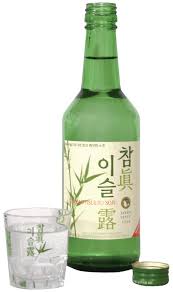Drinking Culture in South Korea and Why it’s Important

Drinking culture in South Korea is a big part of life, and it seems like everyone in Korea drinks. It’s so omnipresent, that sometimes it can feel more like its part of your job! Why exactly is this? Well, let’s find out! (Plus tips on how to refuse.)
1) It has always been important!
Back in the olden days (super specific, I know), Koreans used to drink alcohol to celebrate important holidays. On these holidays, people would drink alcohol during rituals as a way to show respect to their elders and ancestors. Drinking in Korea was more an obligation than something you did for fun. However, as time went on, ideas began to change and that resulted in…
2) Confucian Confusion
Confucianism was the ruling belief system in Korea during the Joseon Dynasty, which controlled Korea from 1392-1897. That’s a long time. Because of this utter domination, Korean culture still holds on to many of the Confucian ideals. The one you see the most of is the Confucian respect of elders and because of that…
3) R-E-S-P-E-C-T
Drinking in Korea with people who are seen as “above” you (elders or workplace superiors) has a LOT of rules. These rules all date back to Confucianism in the 1300s and are closely tied to Confucian ideas. Scholars used to get together for educational sessions called “Hyanguemjurye” (형음주), where fancy people would get together and learn how to yell at their underlings for pouring them booze with the wrong hand. However…
4) Drinking is how you show your elders respect and how they show you respect
Being invited out to drinks with someone who you view as far above you is one of the biggest compliments a Korean worker can receive. It’s how higher-ups show their inferiors that they actually care about them. You can then show your boss respect by having perfect drinking etiquette for the entire night. If your boss is constantly re-filling your soju cup, it’s a sign that he really likes you, but maybe he likes you too much, because…
5) Drinking loosens the screws
There’s a lot of hierarchy in Korea, especially in the workplace. And that leads to a lot of words that are never said. This can include personal opinions, personal life or complaints against the boss. Without a chance to let loose, things can bottle up and explode quicker than a shaken makgeolli bottle. So Koreans look at drinking as a chance to bond with their peers in a way they can’t in other settings. Drinking is important because it lets you open a whole can of things that can’t and won’t (and sometimes probably shouldn’t) be said!
7) Koreans have the science of hangover cures down pegged
You can’t swing a cat in Seoul without hitting something that is there specifically to cure your hangover. From hangover soups (해장국“haejangkook”), to hangover drinks (“medicinal” energy drinks easily bought at convenience stores), to good ole-fashioned sweat-lodges (찜질방“jjimjilbang”), it’s easy to get the tiger off your back if you need to. Many restaurants that sell hangover cures are open early in the morning to serve salary men (office workers) poisoned from the night before. This is largely because…
8) Alcohol Omnipresence
Alcoholic beverages are EVERYWHERE in Korea and they are also CHEAP! You can buy beer, liquor, wine, or Korean specialty alcohols in every convenience store and supermarket (only the ones on university campuses appear to be the exceptions). A bottle of soju packs a respectable 20% alcohol and costs less than $2. You can also drink pretty much anywhere (playgrounds, parks, and sidewalks included; school grounds excluded). It’s an alcoholic paradise!
Tip: How to refuse alcohol
It is entirely possible to politely refuse drinks. The best way to make sure you don’t offend anyone, however, is to still accept the drink and then just let it hang out next to you. You can pretend to sip it after toasts or just drink it very slowly throughout the night. Completely refusing alcohol is also acceptable, but people may ask you why you’re not drinking (best to just say “I’m on antibiotics” if you want to avoid a line of questioning).
Drinking is NEVER mandatory and being forced to drink is NEVER acceptable, Korea is no exception. However, a long night drinking with a bunch of Koreans and practicing the culture is definitely an experience we can recommend!
Article Source: http://seoulistic.com/korean-culture/drinking-culture-in-south-korea-and-why-its-important/
Image Source: https://encrypted-tbn3.gstatic.com/images?q=tbn:ANd9GcSefpDqKptF2SpgV5cg7Cu-lMDiI_hmPeztoTmOsFZT9eWs4vX6YYMdn-wX
VOCABULARY WORDS:
1. Omnipresent (adj.) ~ present everywhere simultaneously
2. Ritual (n.) ` ~ a detailed method or procedure faithfully followed
3. Utter (adj.) ~ complete
4. Underling (n.) ~ one of a lesser rank or authority than another
5. Booze (n./ slang) ~ hard liquor
6. Compliment (n.) ~ to show fondness
7. Higher-up (n./informal) ~ one who has a rank or position higher than the others
8. Hierarchy (n.) ~ categorization of people according to ability or status
9. Loose (adj.) ~ not tight
10. Cure (n.) ~ recovery from disease
11. Alcoholic (n.) ~ a person who drinks alcohol habitually and to excess
13. Refuse (v.) ~ to decline to do
14. Offend (v.) ~ to cause displeasure or anger
15. Mandatory (adj.) ~ required or commanded by authority
QUESTIONS FOR DISCUSSION:
1. Why is it an honor to be invited to drink by your superior?
2. Please explain and discuss the proper way of serving alcohol to an elderly.
3. Give examples of different cures for hang over in Korea? Are they all effective?
4. When a person is drunk, he/she could become more outspoken or out of control. Have you ever witnessed an incident like this while drinking with your colleagues? What happened?